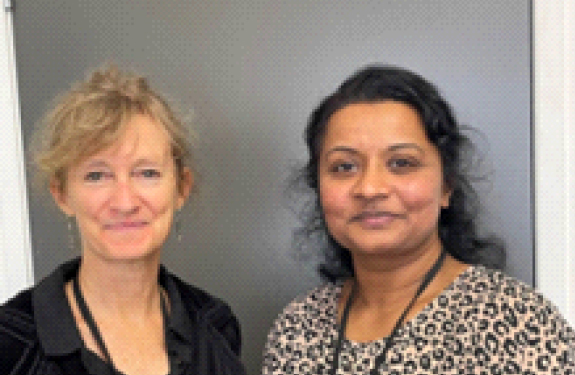News from the Ground | " Māngere Refugee Health Service "
MRHS also offers advocacy and coordination of services through their community team to ensure holistic care for those resettled within the Auckland region.
The Community Team comprises Jikku Alex, Advanced Clinical Social Worker and Jacinta Gibson, Clinical Nurse Specialist, who do home visits to conduct social and health assessments, respectively, with each individual or family within 4-6 weeks of being resettled in Auckland. Phone assessments rather than home visits have become more common in the first quarter of 2024 due to a sudden increase in the number of refugees that arrived in December 2023. Many with high health needs choose to settle in Auckland. Depending on the outcome of these assessments, Jacinta's and Jikku's work may involve advocacy, coordination of referrals to relevant services, psycho-social and health education, and practical assistance to manage everyday needs. However, many people choose to self-settle in Auckland rather than go to their allocated resettlement destinations. They are thus not entitled to any settlement support from Kahui Tu Kaha, the organisation designated to assist in Auckland.
Two of the biggest challenges that newly resettled quota refugees face are language barriers and lack of access to transport, which in turn results in inequities of service accessibility and delivery, further exacerbating existing conditions. While the New Zealand Code of Health and Disability Service Consumers' Rights states that consumers have the right to effective communication, there are many systemic barriers to accessing interpreters and a lack of practice knowledge among health practitioners regarding working with interpreters effectively. They stated that they come across many instances where family members, including children, are used to communicate in healthcare and social service settings, which raises questions about accuracy and ethical concerns.
From their experiences working with newly arrived quota refugees, Jikku and Jacinta believe that it is vital for health professionals to know the distinction between migrant and refugee and understand the refugee journey while being mindful that everyone's experiences are unique. They emphasised that understanding the journey and the fact that refugees have not had control of much of their journey helps understand the complexities this population may present. They stressed the dangers of subscribing to assumptions and generalisations around refugee populations and that it is crucial to work respectfully, taking time to understand each individual and family.
Image:
Left: Jacinta Gibson, Clinical Nurse Specialist, Mangere Refugee Health Service (Community)
Right: Jikku Alex, Advanced Clinical Social Worker, Mangere Refugee Health Service, Counties District
